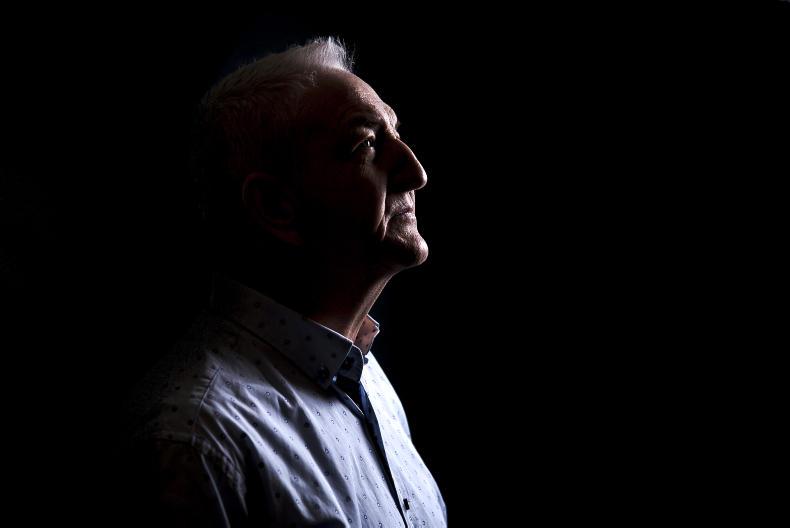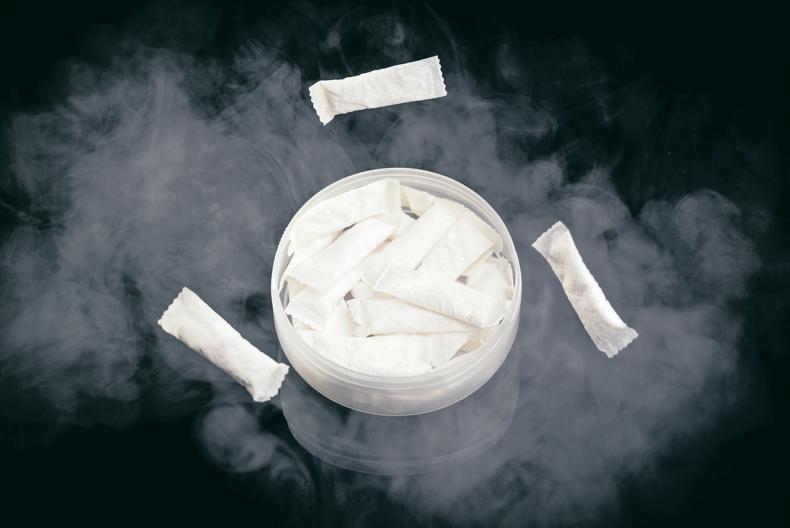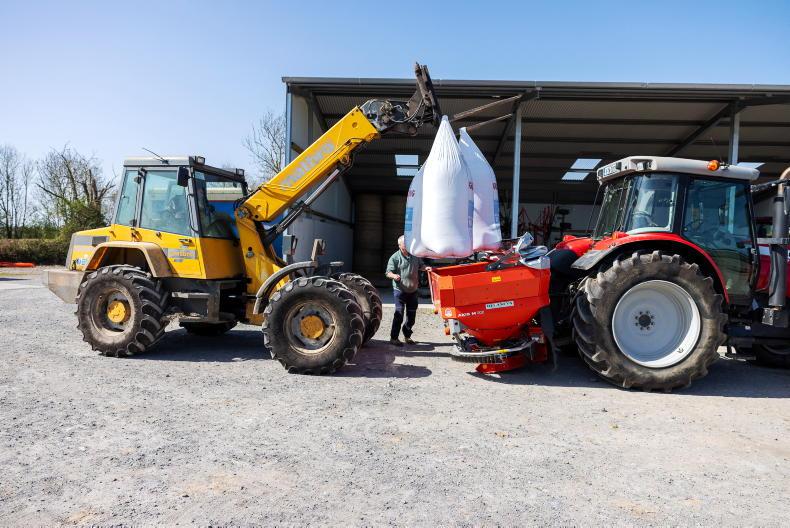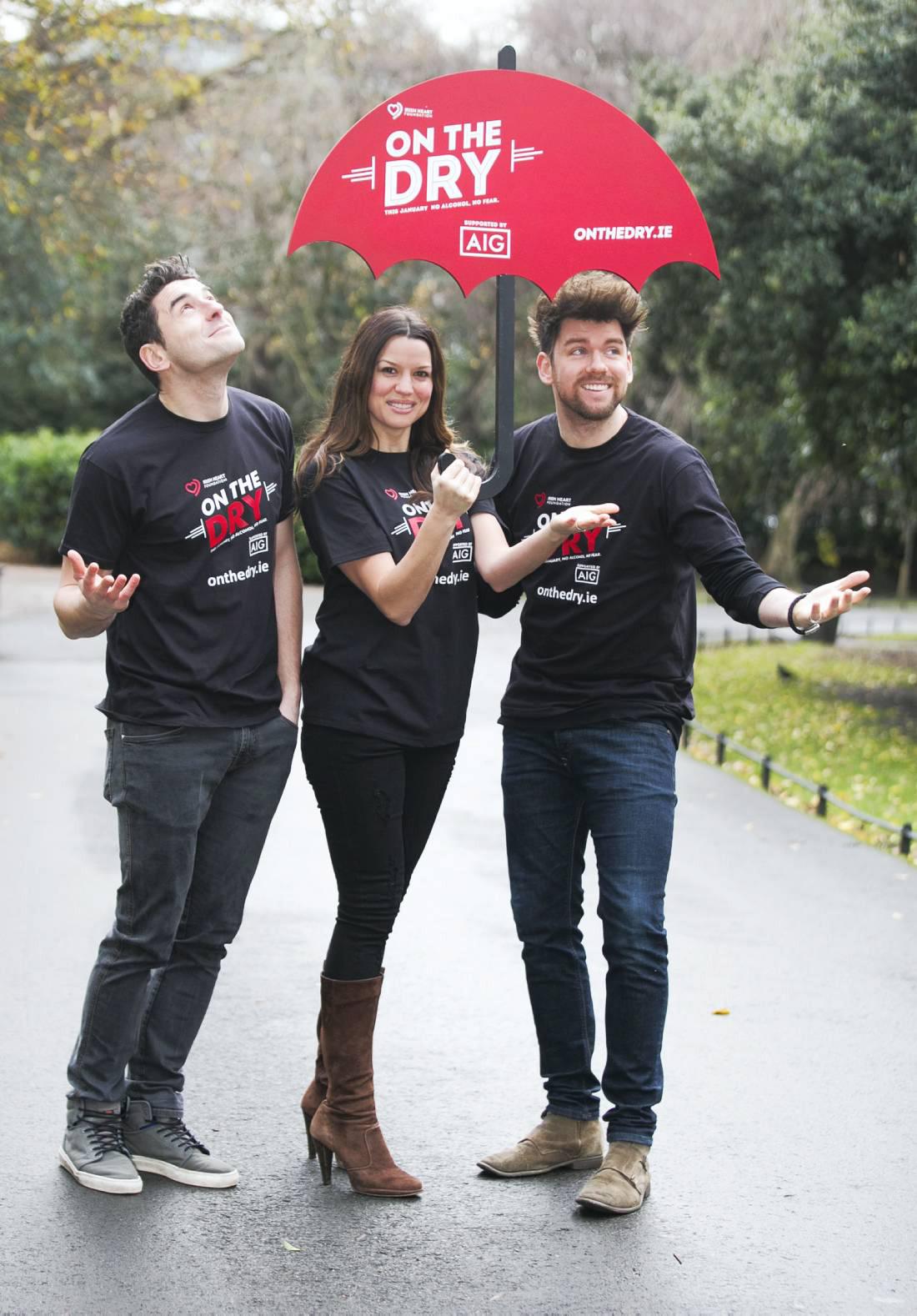Making the citation speech at the Tipperary Peace Prize, awarded to Pakistani teenager Malala Yousafzai in August 2013, was a big event for Martin Quinn.
That’s because he’d worked very hard at recovering from a stroke in order to do it. The brain bleed he experienced the previous January had affected his ability to speak properly but sheer determination to be involved on this special day helped him to rehabilitate.
An assistant supervisor on a CE scheme at the time, he had been on local radio on that fateful morning doing an interview related to Malala being announced as winner of that year’s award. However, things went wrong very quickly. “When I went to answer the presenter’s question, I couldn’t,” he says.
I knew what was in my head but the answer wouldn’t come out. Next I started to talk and it was like the floodgates opened but it wasn’t very coherent.
"After a second question where the same thing happened, the interview had to be cut short. People probably thought I was drunk.”
While Martin admits to being under some stress at the time of his stroke, he hadn’t felt physically unwell prior to it.
“While I had suffered from various health problems over the years,” he says.
“I wasn’t on any particular medication and I wasn’t aware of any difficulty that morning before the interview.
A colleague subsequently said that I hadn’t given very clear answers in conversation earlier that morning, but it was nothing major.
After the radio interview, Martin drove the short distance home.
“In hindsight, that was a dangerous thing to do,” he says, “as anything could have happened but I wasn’t thinking correctly because of the stroke.”
On his own at home, it was the following day before he rang his GP after sleeping badly and experiencing a severe headache.

Martin Quinn suffered a stroke in 2014. \ Philip Doyle.
KNEW SOMETHING WAS HAPPENING
“It was all at the top of my head – very unusual. I never thought of stroke, although I knew something unusual was happening as my co-ordination wasn’t good. I was knocking into things and I also couldn’t read the time on my phone, for example, but I wasn’t really able to put anything together as I was confused.”
Martin didn’t explain what was wrong when he rang his GP’s surgery and left a message.
I should have told the secretary why I wanted the doctor to ring me back but I didn’t.
By the time his GP returned the call, one of Martin’s daughters had luckily returned from college.
“My bedroom was upstairs and by that stage I had to get down on my backside to get myself down the stairs,” he says.
“The doctor rang as she arrived. I wasn’t able to talk by that stage. The ambulance was called then.”
An MRI later showed that he’d had a stroke.
“They could see the brain bleed on the scan. I was shocked but all I was concerned about were my two daughters, how would they feel when they’d hear it. They were only 19 and 20 years of age at the time.”
FOLLOW-UP NOT GOOD ENOUGH
Martin spent some weeks in a stroke unit but was also readmitted to hospital twice with two subsequent minor strokes. He wasn’t happy with the follow-up care he had after being discharged, he says.
While I eventually had speech and physiotherapy in a rehabilitation unit, it had to be fought for and the follow-up after coming out of hospital initially wasn’t good enough.
"Even the public health nurse hadn’t been informed that I’d had a stroke and that I was home,” he says.
FELL BETWEEN TWO CARE STOOLS
Martin points out that someone who is younger is at a disadvantage when it comes to follow-up stroke services.
“I found that if you’re in your 50s getting a stroke, you fall between two stools. For the majority of younger people who need speech therapy or an older person who has stroke, the therapy is often there almost immediately, but at my age I had to fight very hard to get therapy. Thankfully, once it started I began to improve.”
While Martin had to retire early and the transition from working to retirement wasn’t easy, he keeps busy now with voluntary work and writing. He also has regular health reviews and therapy as he needs it, he says.
He is also involved with the Tipperary Aphasia* Support Group and the Irish Heart Foundation National Stroke Support Group Network.
I give talks and I’ve spoken at a stroke conference about how determined I was to get my speech back.
His speech is vastly improved from what it was, he says.
“When I was in hospital, they were asking me to say the word ‘cup’ and I couldn’t do it. When Malala came later that year in August, I was able to deliver the citation speech. I had worked very hard with the speech therapist and of course had the speech learned off, more or less, and worked hard on my breathing.
“It was a real boost to me being able to achieve that. I think that if I hadn’t done that then, I might never have got back to doing that sort of thing.”
THERE IS LIFE AFTER STROKE
Five years on, Martin wants people to know there’s life after a stroke.
“There is a chance of making progress like I’ve done. Before I had the stroke I would have associated strokes with elderly people and now I know that even babies and children can have a stroke. I hope that my story is an inspiration to others. Life after stroke is never the same and certainly not easy but there is support out there.”
KNOW THE SIGNS - FAST
Martin encourages everyone to know the signs of stroke and think of the FAST acronym. “Every minute matters so you have to act F.A.S.T.”
• F– Face: has their face fallen to one side? Can they smile?
• A – Arms: can they raise both their arms and keep them there?
• S – Speech: is their speech slurred?
• T – Time: It’s time to call 999 if you see any single one of these signs.
Getting to hospital quickly can make all the difference for stroke survivors, saving lives and reducing the disability a person might develop.” CL
*Aphasia is an acquired communication disorder that impairs a person’s ability to process language but does not affect intelligence.
More info
Martin, who received the Tipperary Person of the Year Award in 2012 for his community work, points out that there is new medication available now and better clot-busting drugs for treating a stroke.
“The quicker you get them, the better,” he adds.
It is very important that that message gets out there.
“I had the speech and the weakness on one side of my body but the stroke wasn’t obvious on my face. But, then again, I was at home and no one saw me that day. Not everyone has all the signs when they have a stroke though.”
CONTACT LOCAL SUPPORT GROUP
He advises anyone who has been affected by stroke to contact their local stroke or aphasia group.
“Nationally there is also a new group called United for Stroke for young stroke survivors,” he says.
There is also support for families. Family members are often involved as carers and need support too.
"They can come along to the group meetings with the person who has had the stroke.” However, the services from the HSE are not what they should be, he adds.
“They should be better, particularly for rehabilitation. I came out of hospital with nothing. There is a huge need for better follow-up. We are asking for that.”
HOW TO PREVENT A STROKE
The Irish Heart Foundation says that eight out of 10 strokes are preventable through a heart-healthy lifestyle and that small changes can make a huge difference, such as the following:
• Keep blood pressure at normal levels.• Eat healthily.• Get more exercise.• Stop smoking.Irish Heart Foundation National Stroke Support Group Network. The National Heart and Stroke Nurse Helpline number is 1800-252 550 (Monday to Friday 9am to 5pm).
See www.irishheart.ie for more.
Read more
HEALTH: ‘Smoking still causes nine out of 10 deaths from lung cancer’
Breathe uneasy - all you need to know about sinusitis
Making the citation speech at the Tipperary Peace Prize, awarded to Pakistani teenager Malala Yousafzai in August 2013, was a big event for Martin Quinn.
That’s because he’d worked very hard at recovering from a stroke in order to do it. The brain bleed he experienced the previous January had affected his ability to speak properly but sheer determination to be involved on this special day helped him to rehabilitate.
An assistant supervisor on a CE scheme at the time, he had been on local radio on that fateful morning doing an interview related to Malala being announced as winner of that year’s award. However, things went wrong very quickly. “When I went to answer the presenter’s question, I couldn’t,” he says.
I knew what was in my head but the answer wouldn’t come out. Next I started to talk and it was like the floodgates opened but it wasn’t very coherent.
"After a second question where the same thing happened, the interview had to be cut short. People probably thought I was drunk.”
While Martin admits to being under some stress at the time of his stroke, he hadn’t felt physically unwell prior to it.
“While I had suffered from various health problems over the years,” he says.
“I wasn’t on any particular medication and I wasn’t aware of any difficulty that morning before the interview.
A colleague subsequently said that I hadn’t given very clear answers in conversation earlier that morning, but it was nothing major.
After the radio interview, Martin drove the short distance home.
“In hindsight, that was a dangerous thing to do,” he says, “as anything could have happened but I wasn’t thinking correctly because of the stroke.”
On his own at home, it was the following day before he rang his GP after sleeping badly and experiencing a severe headache.

Martin Quinn suffered a stroke in 2014. \ Philip Doyle.
KNEW SOMETHING WAS HAPPENING
“It was all at the top of my head – very unusual. I never thought of stroke, although I knew something unusual was happening as my co-ordination wasn’t good. I was knocking into things and I also couldn’t read the time on my phone, for example, but I wasn’t really able to put anything together as I was confused.”
Martin didn’t explain what was wrong when he rang his GP’s surgery and left a message.
I should have told the secretary why I wanted the doctor to ring me back but I didn’t.
By the time his GP returned the call, one of Martin’s daughters had luckily returned from college.
“My bedroom was upstairs and by that stage I had to get down on my backside to get myself down the stairs,” he says.
“The doctor rang as she arrived. I wasn’t able to talk by that stage. The ambulance was called then.”
An MRI later showed that he’d had a stroke.
“They could see the brain bleed on the scan. I was shocked but all I was concerned about were my two daughters, how would they feel when they’d hear it. They were only 19 and 20 years of age at the time.”
FOLLOW-UP NOT GOOD ENOUGH
Martin spent some weeks in a stroke unit but was also readmitted to hospital twice with two subsequent minor strokes. He wasn’t happy with the follow-up care he had after being discharged, he says.
While I eventually had speech and physiotherapy in a rehabilitation unit, it had to be fought for and the follow-up after coming out of hospital initially wasn’t good enough.
"Even the public health nurse hadn’t been informed that I’d had a stroke and that I was home,” he says.
FELL BETWEEN TWO CARE STOOLS
Martin points out that someone who is younger is at a disadvantage when it comes to follow-up stroke services.
“I found that if you’re in your 50s getting a stroke, you fall between two stools. For the majority of younger people who need speech therapy or an older person who has stroke, the therapy is often there almost immediately, but at my age I had to fight very hard to get therapy. Thankfully, once it started I began to improve.”
While Martin had to retire early and the transition from working to retirement wasn’t easy, he keeps busy now with voluntary work and writing. He also has regular health reviews and therapy as he needs it, he says.
He is also involved with the Tipperary Aphasia* Support Group and the Irish Heart Foundation National Stroke Support Group Network.
I give talks and I’ve spoken at a stroke conference about how determined I was to get my speech back.
His speech is vastly improved from what it was, he says.
“When I was in hospital, they were asking me to say the word ‘cup’ and I couldn’t do it. When Malala came later that year in August, I was able to deliver the citation speech. I had worked very hard with the speech therapist and of course had the speech learned off, more or less, and worked hard on my breathing.
“It was a real boost to me being able to achieve that. I think that if I hadn’t done that then, I might never have got back to doing that sort of thing.”
THERE IS LIFE AFTER STROKE
Five years on, Martin wants people to know there’s life after a stroke.
“There is a chance of making progress like I’ve done. Before I had the stroke I would have associated strokes with elderly people and now I know that even babies and children can have a stroke. I hope that my story is an inspiration to others. Life after stroke is never the same and certainly not easy but there is support out there.”
KNOW THE SIGNS - FAST
Martin encourages everyone to know the signs of stroke and think of the FAST acronym. “Every minute matters so you have to act F.A.S.T.”
• F– Face: has their face fallen to one side? Can they smile?
• A – Arms: can they raise both their arms and keep them there?
• S – Speech: is their speech slurred?
• T – Time: It’s time to call 999 if you see any single one of these signs.
Getting to hospital quickly can make all the difference for stroke survivors, saving lives and reducing the disability a person might develop.” CL
*Aphasia is an acquired communication disorder that impairs a person’s ability to process language but does not affect intelligence.
More info
Martin, who received the Tipperary Person of the Year Award in 2012 for his community work, points out that there is new medication available now and better clot-busting drugs for treating a stroke.
“The quicker you get them, the better,” he adds.
It is very important that that message gets out there.
“I had the speech and the weakness on one side of my body but the stroke wasn’t obvious on my face. But, then again, I was at home and no one saw me that day. Not everyone has all the signs when they have a stroke though.”
CONTACT LOCAL SUPPORT GROUP
He advises anyone who has been affected by stroke to contact their local stroke or aphasia group.
“Nationally there is also a new group called United for Stroke for young stroke survivors,” he says.
There is also support for families. Family members are often involved as carers and need support too.
"They can come along to the group meetings with the person who has had the stroke.” However, the services from the HSE are not what they should be, he adds.
“They should be better, particularly for rehabilitation. I came out of hospital with nothing. There is a huge need for better follow-up. We are asking for that.”
HOW TO PREVENT A STROKE
The Irish Heart Foundation says that eight out of 10 strokes are preventable through a heart-healthy lifestyle and that small changes can make a huge difference, such as the following:
• Keep blood pressure at normal levels.• Eat healthily.• Get more exercise.• Stop smoking.Irish Heart Foundation National Stroke Support Group Network. The National Heart and Stroke Nurse Helpline number is 1800-252 550 (Monday to Friday 9am to 5pm).
See www.irishheart.ie for more.
Read more
HEALTH: ‘Smoking still causes nine out of 10 deaths from lung cancer’
Breathe uneasy - all you need to know about sinusitis













SHARING OPTIONS